Environmental Sustainability
Tree Planting
Tree planting is a vital process that involves planting trees in designated areas for environmental restoration, reforestation, and urban greening. It addresses numerous challenges related to climate change, biodiversity loss, and community health. The Makanda Foundation plays an essential role in promoting tree planting initiatives, emphasizing the significance of this practice in creating a sustainable future.
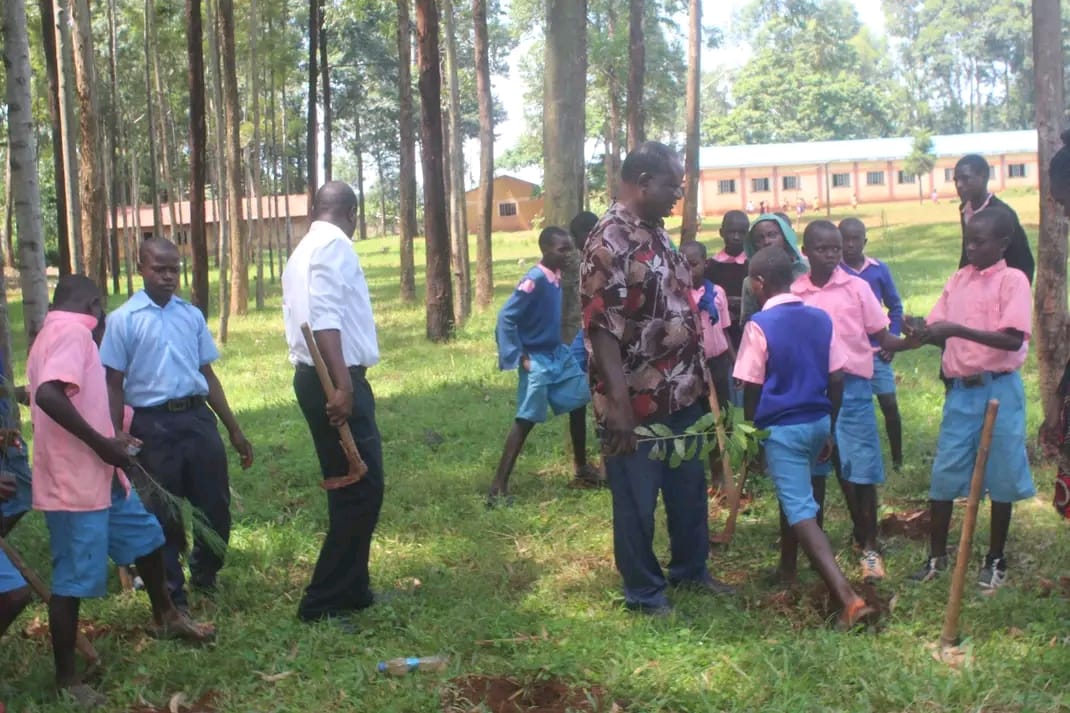
Benefits of Tree Planting
1. Carbon Sequestration
Trees absorb carbon dioxide (CO2) during photosynthesis, effectively reducing greenhouse gas levels in the atmosphere. The Makanda Foundation actively participates in reforestation projects that enhance carbon sequestration, helping mitigate climate change and its impacts.
2. Biodiversity Enhancement
Planting trees restores and creates habitats for various species of flora and fauna. The Makanda Foundation focuses on native species, ensuring that their initiatives support local ecosystems and preserve biodiversity.
3. Soil Health and Erosion Control
Tree roots stabilize the soil, preventing erosion and maintaining soil fertility. The Foundation’s projects contribute to healthier soil, supporting agricultural productivity and ecological balance.
4. Water Cycle Regulation
Trees help regulate the water cycle by absorbing rainwater and facilitating groundwater recharge. The Makanda Foundation’s tree planting initiatives improve local water quality and reduce the risk of flooding, benefiting surrounding communities.
5. Air Quality Improvement
Trees filter harmful pollutants from the air, leading to cleaner environments. The Makanda Foundation’s efforts in urban areas help improve air quality, promoting better public health for residents.
6. Urban Cooling
In urban settings, trees provide shade and mitigate the urban heat island effect. The Foundation’s initiatives aim to enhance green spaces, reducing energy consumption for cooling and improving overall community comfort.
7. Social and Psychological Benefits
Green spaces foster community well-being by offering areas for recreation and relaxation. The Makanda Foundation emphasizes the importance of accessible green spaces for mental health and social interaction.
8. Economic Opportunities
Sustainable forestry and agroforestry can provide income through timber and other forest products. The Foundation’s tree planting projects not only create jobs in conservation and forestry but also promote sustainable economic practices.
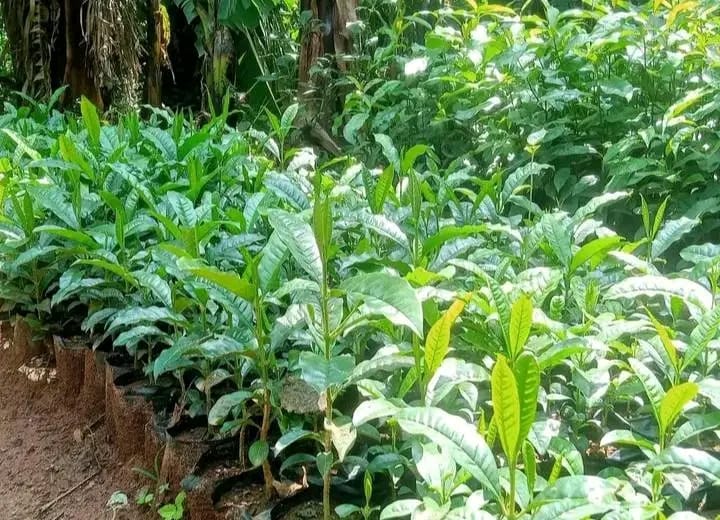
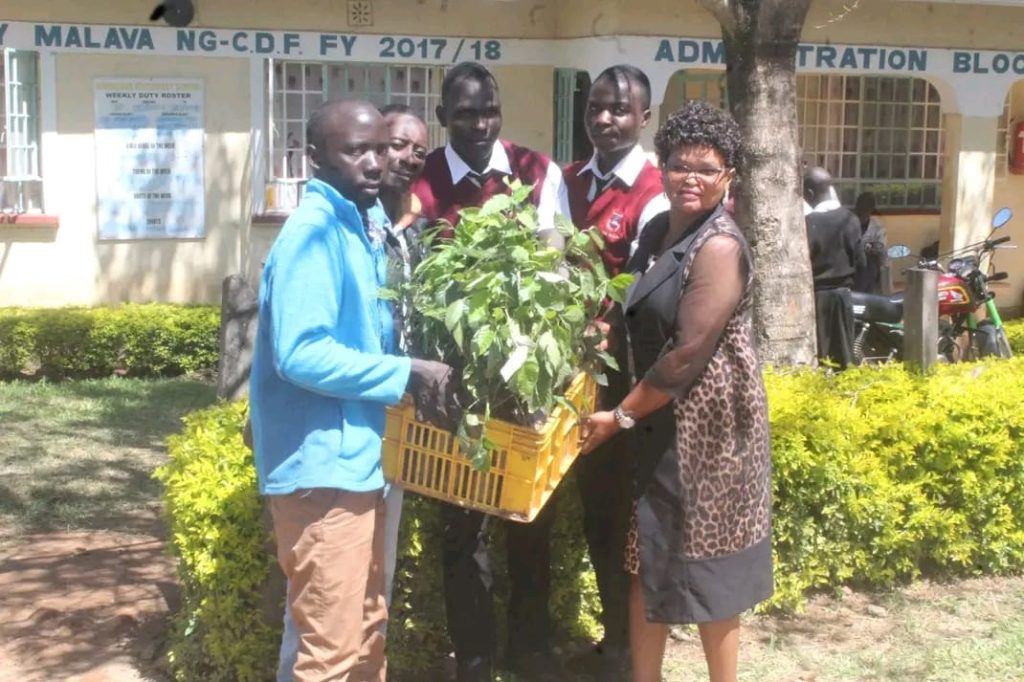
Challenges in Tree Planting
While tree planting offers numerous benefits, it also faces challenges that the Makanda Foundation actively addresses:
1. Species Selection
Choosing the right tree species for specific environments is crucial. The Foundation prioritizes native and drought-resistant species to ensure ecological balance and success in growth.
2. Maintenance and Care
Newly planted trees require ongoing care. The Makanda Foundation implements community engagement strategies to educate and involve local populations in the maintenance of planted trees
3. Land Use Conflicts
Tree planting can sometimes conflict with agricultural or urban development needs. The Foundation works with local stakeholders to find balanced solutions that respect land use priorities while promoting sustainability.
4. Climate Change Effects
Changing climate conditions can impact tree growth. The Makanda Foundation incorporates climate resilience strategies in its planting initiatives, ensuring long-term viability and success.
In summery, Tree planting is a powerful tool for enhancing environmental sustainability and combating climate change. The Makanda Foundation’s commitment to tree planting initiatives not only contributes to carbon sequestration and biodiversity but also fosters community well-being and economic opportunities. By supporting and participating in these efforts, individuals and communities can work together to create a healthier planet and a sustainable future
Renewable Energy
Benefits of Solar Lamps and Lights and The Makanda Foundation's Role
Renewable energy, particularly solar power, plays a crucial role in promoting environmental sustainability and improving quality of life. The Makanda Foundation is dedicated to providing solar lamps and lights to less privileged families, addressing energy access and its associated challenges.
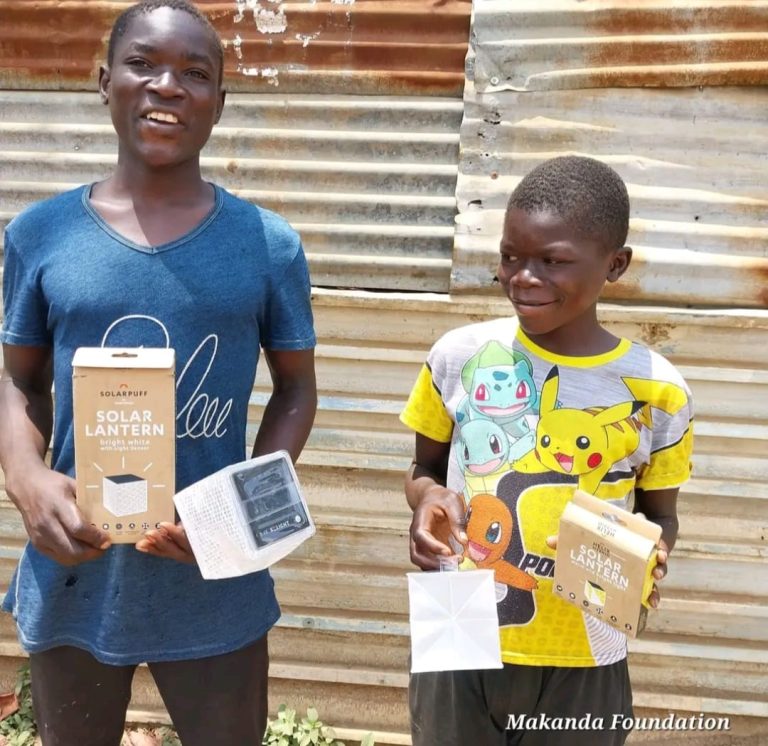
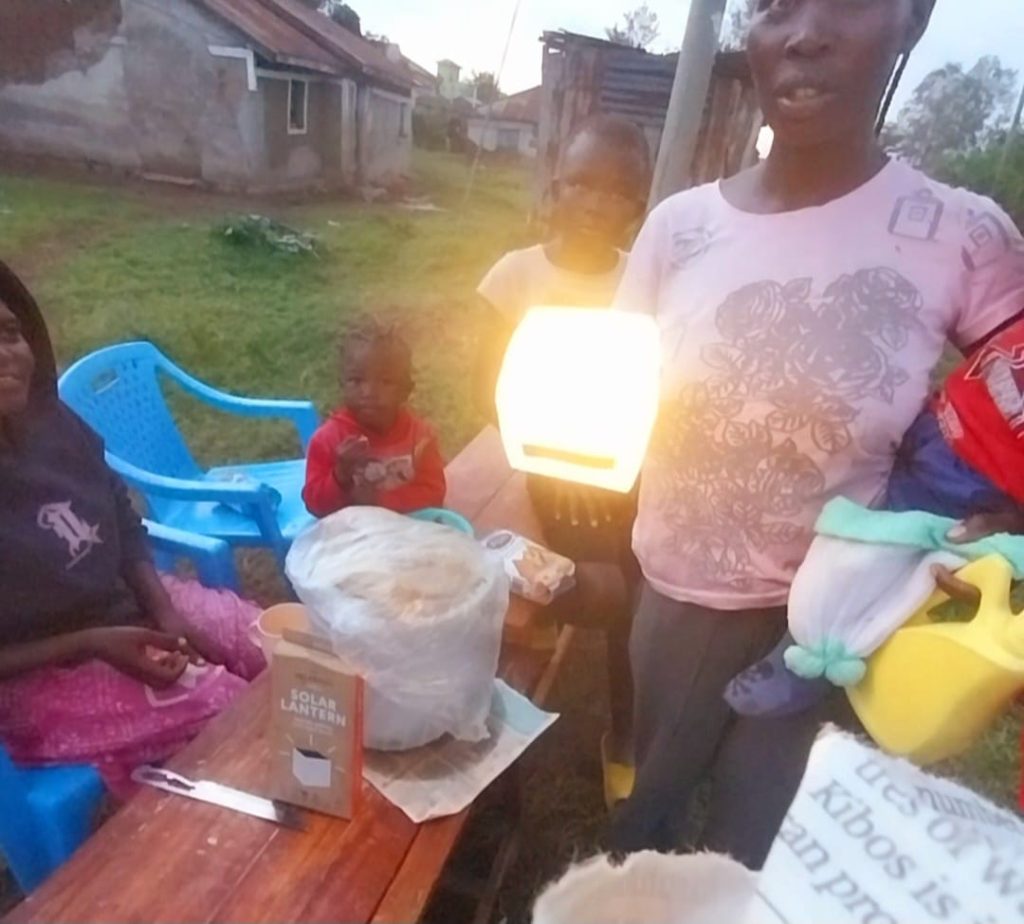
Key Benefits of Solar Lamps and Lights
1. Improved Access to Electricity
Solar lamps provide reliable lighting for families without access to grid electricity. This access enables children to study after dark and allows families to engage in productive activities in the evening, improving educational and economic opportunities.
2. Enhanced Safety and Security
Having solar lights reduces reliance on kerosene lamps, which can be hazardous. Improved lighting enhances safety around homes, reducing the risk of accidents and crime, and providing peace of mind to families, especially at night.
3. Cost Savings
Solar lamps eliminate the need for expensive and hazardous kerosene or candles. Families save money that would otherwise be spent on fuel, allowing them to allocate those funds to other essential needs, such as food or education.
4. Reduced Indoor Air Pollution
Traditional lighting methods like kerosene lamps release harmful pollutants, contributing to respiratory issues. Solar lamps produce clean energy, improving indoor air quality and promoting better health for families.
5. Environmental Benefits
By using solar energy, families reduce their carbon footprint. This shift away from fossil fuels contributes to lower greenhouse gas emissions, helping combat climate change and preserve the environment for future generations.
6. Economic Opportunities
With reliable lighting, families can extend their working hours, engage in small businesses, or participate in community activities after dark. This can lead to increased income and improved economic stability.
7. Community Development
The provision of solar lamps fosters community engagement and development. As families gain access to better lighting, they can come together for community events, enhancing social cohesion and support networks.
The Makanda Foundation's Commitment
The Makanda Foundation is committed to distributing solar lamps and lights to less privileged families, focusing on areas where access to reliable energy is limited. By empowering these communities with clean, sustainable energy solutions, the Foundation helps improve their quality of life while contributing to broader environmental goals.
Providing solar lamps and lights to less privileged families is a transformative initiative that enhances access to electricity, improves safety, and fosters economic opportunities. The Makanda Foundation’s commitment to renewable energy not only supports individual families but also contributes to a more sustainable and equitable future for all. By investing in solar solutions, we can create lasting positive impacts on communities and the environment.
Sustainable Gardening Workshop by The Makanda Foundation
The Sustainable Gardening Workshop, organized by The Makanda Foundation, aims to educate participants on eco-friendly gardening practices that promote environmental sustainability, biodiversity, and healthy food production. This hands-on workshop empowers community members to create and maintain sustainable gardens while fostering a sense of community engagement.
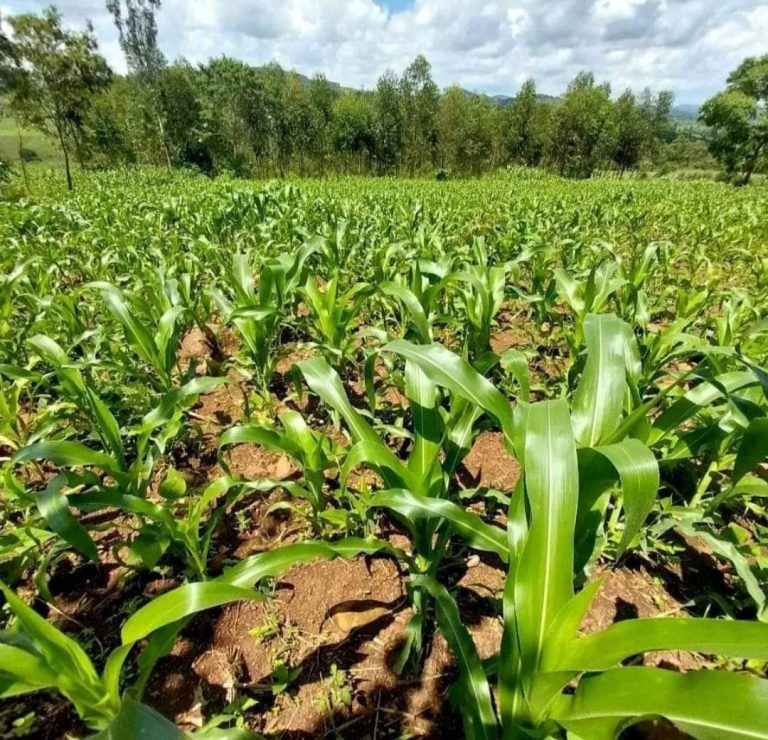
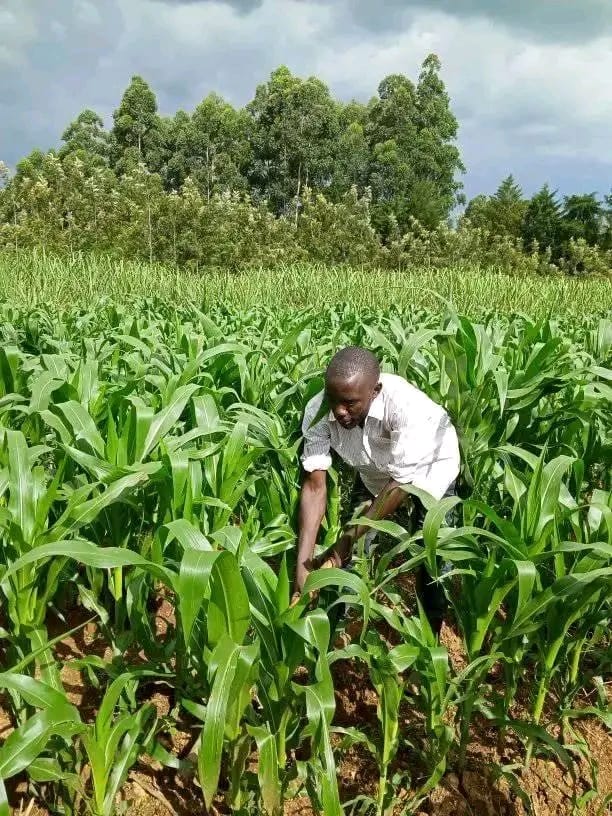
Our Objective Sustainable Gardening:
1. Educate Participants
Teach the principles of sustainable gardening, including soil health, water conservation, and organic pest management, equipping participants with the knowledge to implement these practices at home.
2. Promote Biodiversity
Encourage the use of native plants and diverse species to support local ecosystems, enhancing garden resilience and contributing to biodiversity.
3. Hands-On Experience
Provide practical, hands-on activities that allow participants to apply what they learn, fostering confidence in their gardening abilities.
4. Community Engagement
Strengthen community ties by encouraging participants to share their experiences and collaborate on gardening initiatives.
Workshop Agenda
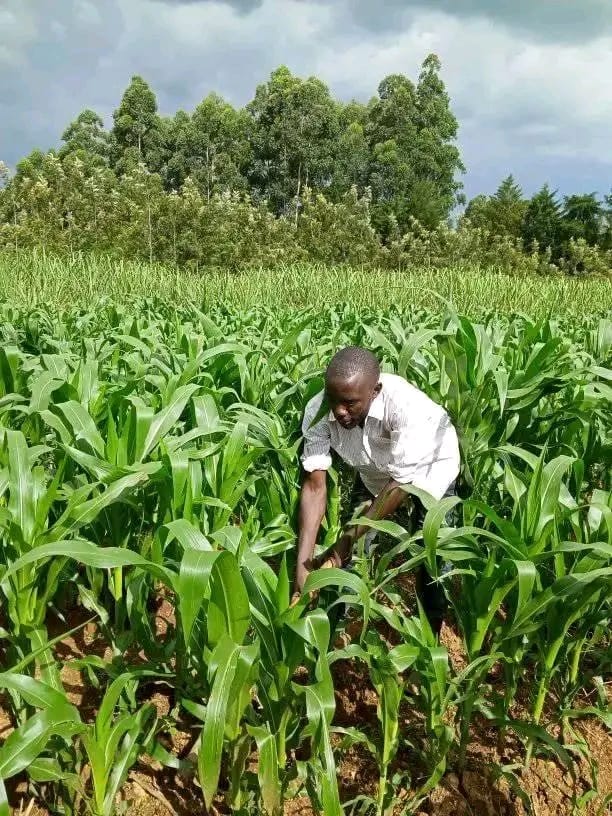
1. Introduction to Sustainable Gardening
Overview of sustainable gardening and its importance in combating climate change and promoting environmental health.
How The Makanda Foundation integrates these principles into its community initiatives.
2. Soil Health and Composting
Understanding soil composition and the role of organic matter.
Hands-on demonstration on creating and using compost to enrich soil.
3. Water Conservation Techniques
Discussing methods like rainwater harvesting and drip irrigation.
Techniques for mulching and xeriscaping to minimize water use.
4. Plant Selection
Choosing native and drought-resistant plants that thrive in local conditions.
Companion planting strategies to promote healthy growth and natural pest control.
5. Organic Pest Management
Identifying common pests and beneficial insects.
Effective natural pest control methods that participants can use in their gardens.
6. Hands-On Gardening Activity
7. Community Resources and Support
Sharing local resources for ongoing gardening support, including community gardens and extension services.
Discussion of The Makanda Foundation’s ongoing community gardening initiatives and how participants can get involved.
Target Audience on Sustainable Gardening
- Home gardeners interested in sustainable practices.
- Community members seeking to enhance their gardening skills.
- Families looking to grow their own food in an eco-friendly manner.
Materials Needed
- Gardening tools (shovels, trowels, gloves, etc.)
- Seeds and plants (native and organic)
- Compost and soil amendments
- Watering cans or irrigation supplies
- Educational materials (handouts, guides)
Achievement
Since the inception of the Sustainable Gardening Workshop, we have successfully trained over 100 families who are currently benefiting from the skills and knowledge gained. These families are now implementing sustainable practices in their gardens, improving their food security and contributing to environmental stewardship within their communities.
Conclusion
The Sustainable Gardening Workshop by The Makanda Foundation provides participants with valuable knowledge and skills to create and maintain eco-friendly gardens. By fostering sustainable practices and community engagement, the workshop aims to enhance food security and promote environmental stewardship, ultimately leading to healthier communities and a more sustainable future. Through this initiative, The Makanda Foundation continues its mission to empower individuals and strengthen community ties.
Examples of Sustainable Gardening Practices at The Makanda Foundation Workshop
1. Composting
Participants learn to create compost bins using kitchen scraps and yard waste, turning organic material into nutrient-rich soil. This practice reduces waste and enhances soil fertility.
2. Rainwater Harvesting
A demonstration on setting up simple rain barrels to collect rainwater for garden irrigation, promoting water conservation and reducing dependency on municipal water sources.
3. Native Plant Selection
Guidance on selecting native plants that are adapted to local climate conditions, requiring less water and maintenance while supporting local wildlife.
4. Crop Rotation
Teaching participants about rotating crops to prevent soil depletion and reduce pest and disease buildup, ensuring healthier gardens over time.
5. Organic Pest Control
Introducing methods such as using neem oil, insecticidal soap, or planting companion plants like marigolds to deter pests naturally.
6. Mulching
Hands-on experience applying organic mulch (like straw or wood chips) to conserve soil moisture, suppress weeds, and improve soil health.
7. Community Garden Project
Participants can engage in a community garden project, where they collectively grow fruits and vegetables, sharing the harvest and building community ties.
8. Vertical Gardening
Demonstrating how to utilize vertical space for gardening, particularly useful in urban areas where ground space is limited, using techniques like trellises or wall-mounted planters.
9. Herb and Vegetable Gardening
Teaching participants how to grow common herbs and vegetables in small spaces, providing fresh produce for their families.
10. Seasonal Planting Calendar
Providing a guide on when to plant different crops based on the local climate, helping participants plan their gardening activities effectively.
